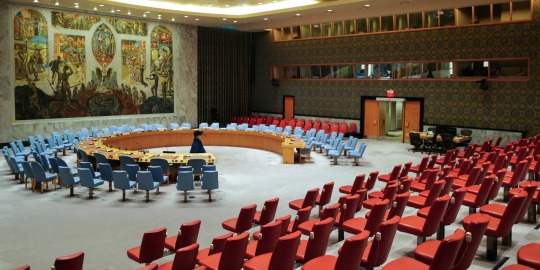#klippenstein
Text
⫘⫘ INTRO ⫘⫘
꒷꒦✧˖°🥩🔨🩸☣️⋆。𖦹꒷꒦
🫁 strade ⌇ edward 𓆨 18 ⌇ he/they 𓀏 mdni.
₊˚⊹☣⊹˚₊ strade eastetics account ⌇ looking 4 moots

#strade btd#ykmet strade#boyfriend to death#lawrence oleander#strade kin#strade#ren hana#kin#strade boyfriend to death#strade you kill me everytime#Strade hanz klippenstein strudelman
40 notes
·
View notes
Text
68 notes
·
View notes
Text

X
555 notes
·
View notes
Text

Oh Ken’s about to get some heat for speaking the truth lmao
33 notes
·
View notes
Text
'Possessor' (2020) film

-watched 8/4/2024- 2 stars- on Tubi (free)
Another strange movie similar to 'Infinity Pool'. Although, this one was too violent and bloody to my notion.
94% Rotten Tomatoes
#my have seen list#Possessor#2020#film#brandon cronenberg#horror/sci fi#psychological#andrea riseborough#christopher abbott#sean bean#jennifer jason leigh#tuppence middleton#rossif sutherland#matthew garlick#rachael crawford#kaniehtiio horn#christopher jacot#raoul bhaneja#danny waugh#deragh campbell#kathy maloney#hanneke talbot#gabrielle graham#hrant alianak#ayesha mansur gonsalves#megan vincent#douglas macleod#kelsey klippenstein#miranda milar#daniel park
6 notes
·
View notes
Text
Leaked Cables Show “War Criminal White House” Opposes Palestinian Statehood
Despite Biden’s Pledge to Support a Two-State Solution, Cables Argue That Palestine Should Not Be Granted U.N. Member Status.
— Ken Klippenstein, Daniel Boguslaw | April 17, 2024 | The Intercept

An empty United Nations Security Council room ahead of a meeting on the situation in the Middle East, in NYC on April 14, 2024. Photo: Charly Triballeau/AFP via Getty Images
Ahead Of The United Nations Security Council action to consider the Palestinian Authority’s application to become a full member of the international body, the United States is lobbying nations to reject such membership, hoping to avoid an overt “veto” by Washington. The lobbying effort, revealed in copies of unclassified State Department cables obtained by The Intercept, is at odds with the Biden administration’s pledge to fully support a two-state solution.
In 2012, the U.N. General Assembly passed a resolution granting Palestine the status of a non-member observer state.
The diplomatic cables detail pressure being applied to members of the Security Council, including Malta, the rotating president of the council this month. Ecuador in particular is being asked to lobby Malta and other nations, including France, to oppose U.N. recognition. The State Department’s justification is that normalizing relations between Israel and Arab states is the fastest and most effective way to achieve an enduring and productive statehood.
While clarifying that President Joe Biden has worked vigorously to support “Palestinian aspirations for statehood” within the context “of a comprehensive peace that would resolve the Israeli-Palestinian conflict,” a diplomatic cable dated April 12 details U.S. talking points against a U.N. vote for Palestinian statehood. The cable says that Security Council members must be persuaded to reject any proposal for Palestinian statehood — and thereby its recognition as a sovereign nation — before the council’s open debate on the Middle East, scheduled for April 18.
“It remains the U.S. view that the most expeditious path toward a political horizon for the Palestinian people is in the context of a normalization agreement between Israel and its neighbors,” the cable reads. “We believe this approach can tangibly advance Palestinian goals in a meaningful and enduring way.”
“We therefore urge you not to support any potential Security Council resolution recommending the admission of ‘Palestine’ as a U.N. member state, should such a resolution be presented to the Security Council for a decision in the coming days and weeks.”
Experts say that without a unanimous Security Council vote, any vote from the U.N. General Assembly is largely symbolic.
“Like it or not, a General Assembly vote on this issue is of political rather than legal weight,” Richard Gowan, the International Crisis Group’s U.N. director, told The Intercept. “The Assembly can only accept a new state ‘on the recommendation’ of the Security Council.”
The diplomatic cable includes a rationale for the administration’s opposition to the vote, citing the risk of inflaming tensions, political backlash, and potentially leading to the U.S. Congress cutting U.N. funding.
“Premature actions at the UNSC, even with the best intentions, will achieve neither statehood nor self-determination for the Palestinian people. Such initiatives will instead endanger normalization efforts and drive the parties further apart, heighten the risk of violence on the ground that could claim innocent lives on both sides, and risk support for the new, reform government announced by President Abbas,” the cable says.
Asked about the cable and whether its opposition to U.N. recognition of Palestinian statehood contradicts the Biden administration’s position in support of a two-state solution, the State Department did not respond at the time of publication.
“The U.S. position is that the Palestinian state should be based on bilateral agreements between the Israelis and Palestinians,” Gowan said. “It does not believe that the UN can create the state by fiat.”
A second cable dated April 13 sent from the U.S. Embassy in Quito, Ecuador, relays Ecuadorian Foreign Minister Gabriela Sommerfeld’s agreement with the United States that Palestine should not be recognized for statehood. In cooperation with the United States, according to the cable, Sommerfeld instructed Ecuador’s permanent representative to the United Nations José De La Gasca to lobby Japan, Korea, and Malta (all rotating members of the Security Council) to reject the proposal. Lobbying of permanent member France is also mentioned.
Sommerfeld agreed, according to the cable, that “It was important any proposed resolution fail to achieve the necessary votes without a U.S. veto.” The cable says, “Ecuador would not want to appear isolated (alone with the United States) in its rejection of a ‘Palestine’ resolution (particularly at a time when the most UN member states are criticizing Ecuador over its April 5 incursion into Mexico’s embassy in Quito).” Ecuador finds itself in an escalating conflict with Mexico over its decision to arrest the former Ecuadorian vice president inside the Mexican Embassy.
Asked about the second cable, the State Department and the Ecuadorian Embassy in Washington did not respond to requests for comment.
With its yearlong seat on the powerful 15-member Security Council, Ecuador holds outsized influence to vote against the Palestinian proposal for recognition.
“This really shows the extent to which the [Ecuadorian President Daniel] Noboa administration is beholden to the United States,” Guillaume Long, senior fellow at the D.C.-based Center for Economic and Policy Research and former foreign minister of Ecuador, told The Intercept when shown the cable. “On top of this, it is quite shocking to see the United States, which condemned Ecuador’s April 5 storming of the Mexican embassy and its violation of international law … making the most of Ecuador’s isolation in the hemisphere to get it to do its bidding. Ecuador is just buying its way out of its crimes by committing more crimes. Truly shocking,” said Long, referring to Ecuador’s rejection of Palestinian membership in the U.N.
After the publication of this story, the Ecuadorian government released the following statement, which reads as translated: “Regarding the alleged leaks published by a digital portal, the Ecuadorian Foreign Ministry denies the veracity of its content. The foreign policy of the National Government, including its actions as a non-permanent member of the UN Security Council, is clear, adhered to the principles of international law, public and transparent, as is all participation of the country and its authorities in different international forums. Citizens are called to obtain information only through official means.”
Since 2011, the U.N. Security Council has rejected the Palestinian Authority’s request for full member status. On April 2, the Palestinian Observer Mission to the U.N. requested that the council once again take up consideration of its membership application. According to the first State Department cable, U.N. meetings since the beginning of April suggest that Algeria, China, Guyana, Mozambique, Russia, Slovenia, Sierra Leone, and Malta support granting Palestine full membership to the U.N. It also says that France, Japan, and Korea are undecided, while the United Kingdom will likely abstain from a vote.
“It is important that all Security Council members hear at this stage of the process that a number of members have questions that require further study about the Palestinian Authority’s formal request for UN membership through the Council, and that if a vote is forced on the issue, you will join the United States and not support approval of the application,” the cable reads.
#War Criminal | United States 🇺🇸#Leaked Cables | “War Criminal White House”#Opposes | Palestinian Statehood#— Ken Klippenstein | Daniel Boguslaw#Palestine 🇵🇸 | Should Not Be Granted | United Nations 🇺🇳 | Member Status
5 notes
·
View notes
Text
holy shit


#free speech#twitter#steven zetti#ken klippenstein#rob rousseau#trueanon#true anon#zei squirrel#liam nissan
9 notes
·
View notes
Text

4 notes
·
View notes
Text

#us politics#2022#twitter#tweet#republicans#conservatives#bigots be like#republicans be like#conservatives be like#ken klippenstein#biden administration#president joe biden#Richard Hanania#naomi biden
44 notes
·
View notes
Text
When Senator Dianne Feinstein entered a hearing room this month to reclaim her seat on the Senate Judiciary Committee after a months-long absence, she was accompanied by a phalanx of aides.
Two staff members settled the 89-year-old California Democrat into a chair at the dais as the assembled Senators greeted their ailing colleague with a round of applause. When Ms. Feinstein spoke — during a vote on one of several of President Biden’s judicial nominees whose approval had awaited her return — she appeared to read from a piece of paper handed to her by a female aide seated behind her.
“I ask to be recorded as voting in person on the three nominees considered earlier, Mr. Chairman, and I vote aye now,” she said.
The aide knelt next to her and whispered into her ear in between votes — popping up repeatedly from her seat to confer with the Senator, at one point clearing away the paper Ms. Feinstein had read from and presenting her with a folder that appeared to contain background information about the nominees.
The scene was typical of Ms. Feinstein’s day-to-day existence on Capitol Hill, where she is surrounded by a retinue of staff members who serve not only the roles of typical congressional aides — advising on policy, keeping tabs on the schedule, drafting statements and speeches — but also as de facto companions to a senator whose age, frail health and memory issues make it difficult for her to function alone.
Their roles have come under more scrutiny as a number of Democrats and many of Ms. Feinstein’s constituents are increasingly concerned about her refusal to relinquish a post that she is not capable of fulfilling without heavy and constant reliance on her aides.
They push her wheelchair, remind her how and when she should vote and step in to explain what is happening when she grows confused. They stay with her in the cloak room just off the Senate floor, where Ms. Feinstein has taken to waiting her turn to vote, then appearing in the doorway to register her “aye” or “nay” from the outer edge of the chamber.
All Senators rely heavily on staff. But for years, Ms. Feinstein’s memory problems have meant that she has needed far more support than other Senators. Briefing her on the news of the day requires longer sessions and more background information.
At times she has expressed confusion about the basics of how the Senate functions. When Vice President Kamala Harris was presiding over the chamber last year in one of many instances in which she was called upon to cast a tiebreaking vote, Ms. Feinstein expressed confusion, according to a person who witnessed the scene, asking her colleagues, “What is she doing here?” Staff members have been overheard explaining to her that she cannot leave yet because there are more votes to come.
Since she has returned to work on a limited schedule as she recovers from shingles and multiple serious complications, Ms. Feinstein’s staff has made sure she is never alone and is heavily protected. The Capitol Police and the Senate sergeant-at-arms have gone to great lengths to keep Ms. Feinstein shielded from photographers and reporters, The Los Angeles Times reported, helping to create a bubble around her as aides run interference on her behalf.
Reporters have been asked at times to keep a respectful distance from the Senator, while staff members have tried to hide her from photographers.
It is an awkward task for Ms. Feinstein’s aides, many of whom go back decades with her. They are wrestling with how to balance their work as public servants with their responsibilities to a vastly diminished lawmaker who remains in charge of representing California’s 40 million residents, and who sometimes makes public statements that are not true.
After The New York Times revealed this month that Ms. Feinstein had encephalitis brought on by shingles, a condition that had not been disclosed by her office, she denied the story, telling a CNN reporter who managed to approach her at the Capitol that she had merely had a “bad flu.” Her spokesman, Adam Russell, later released a statement correcting her and confirming that the Senator had encephalitis, which he said had “resolved itself” in March. Mr. Russell said she also had Ramsay Hunt syndrome, which can cause facial paralysis.
“They have a responsibility to give her brutally honest counsel and then adhere to her wishes, as she — and not they — were elected,” David Axelrod, a former top adviser to former President Barack Obama, said. “And they have an obligation to help her meet her own responsibilities to her state and the office.”
Staff members in Ms. Feinstein’s office say they engage in frank conversations with her about her future and are not shielding her from reality. So far, she has insisted that she is able to work and has no plans to leave office before her term ends in 2025; she is not seeking re-election.
Her aides do not issue any statements without Ms. Feinstein’s sign-off, and describe her as strong-willed even in her diminished state.
“All senators rely heavily on staff to do the job, particularly a senator who represents 40 million people,” said her chief of staff, James Sauls. “While staff advise her, she ultimately is the one who makes the decision about how to best take action for the people of California.”
Yet Ms. Feinstein’s staff has taken heat from critics on the left who have been angered at her refusal to step down immediately, and who argue that her aides are complicit in helping to prop up a lawmaker who should no longer be serving.
This month, a reporter for the Intercept, Ken Klippenstein, posted on Twitter names, salaries and other details of senior and lower-level staff members in Ms. Feinstein’s office, writing that it was “time to name and shame Dianne Feinstein’s staff, all of whom should be blacklisted from politics forever for caring so little about their country that they refuse to resign.”
The posts were condemned by many on the left and right, and ultimately deleted.
For now, her aides have been left to figure out how to make Ms. Feinstein’s office work as well as it can in the absence of a fully functional Senator. They have done so, some of them said, by relying on the senator’s three decades’ worth of policy positions and explicit systems she put in place long ago that were designed to make her office efficient — and which earned her a reputation for running one of the more demanding work places on Capitol Hill.
Ms. Feinstein, who aides say has never taken a real vacation, expects the same level of commitment to the job as she puts in.
Staff meetings have hierarchical seating assignments. All aides are expected to write up what’s known as a “weekly,” a memo detailing their work for the week for the Senator to review.
Information is delivered to Ms. Feinstein in color-coded folders. There’s a format in place for submitting vote recommendations to the Senator. And the office has a vast library of letters to draw on for responses to some five million pieces of correspondence from constituents it receives every year.
In recent months, the decades-old systems are helping the office run without her, as Ms. Feinstein’s blue-tabbed press folder has been delivered to her, filled with dismal clips about her health, editorials calling for her resignation and polls showing that most California voters want Ms. Feinstein to resign.
Ms. Feinstein has recently lost some of the staff members who know her and her systems best. David Grannis, her longtime chief of staff, left the office earlier this year in a long-planned move. Her veteran communications director, Tom Mentzer, died in late February.
Still, many of her more senior policy staff members have been with her for over a decade and feel a great sense of loyalty to Ms. Feinstein, and equally dedicated to their issues of expertise. They are continuing their work, communicating with the Senator through the phone, memos and faxes. (Yes, the Feinstein office still faxes.)
Since returning to Washington, Ms. Feinstein has missed six votes and has not participated in any committee hearings or caucus lunches. Still, there is a sense among her staff members that the office needs to keep functioning. And the reality of the Senate is that, even with a Senator sidelined, an office can run in a fairly normal fashion.
Case workers deal with business that would never have boiled up to a Senator’s level: passport renewal requests, providing assistance for those applying for U.S. citizenship, helping those applying to a military service academy or those seeking relief from a federal administrative decision.
Staff members in Washington and California also review appropriations requests according to a long-running system, which now helps them speed up the process that ultimately requires Ms. Feinstein’s approval for funding, even if she’s not there.
And Ms. Feinstein has always been formal, preferring to communicate with her Senate colleagues through letters or memos rather than face to face.
Since she has been back, Ms. Feinstein has co-sponsored legislation to support the development of facilities that make use of timber from wildfire hazardous fuels reduction projects. She also co-sponsored legislation with Senator Marsha Blackburn, Republican of Tennessee, that would allow independent music creators to deduct all of their production expenses in the year they are incurred, rather than down the line.
Still, her aides have taken on an outsized role that Ms. Feinstein might once have found difficult to swallow.
“You can’t let staff run you,” she told her biographer, Jerry Roberts, in the 1990s. “The person in charge has to be the guiding post.”
#us politics#news#sen. Dianne Feinstein#2023#the new york times#Democrats#Senate Judiciary Committee#shingles#encephalitis#Vice President Kamala Harris#the los angeles times#Ramsay Hunt syndrome#Capitol Police#California#congressional aides#James Sauls#Ken Klippenstein#us senate
8 notes
·
View notes
Text

#ken klippenstein#theintercept#free palestine#gaza#immediate ceasefire#genocide#war crimes#palestine#gaza strip#ceasefire#israeli war crimes#us war crimes#west bank#israel#stop zionism#benjamin netanyahu#joe biden#stop us aid to israel#apartheid#ethnic cleansing
1 note
·
View note
Text



7 notes
·
View notes
Text
"House Speaker Kevin McCarthy’s debt limit bill unveiled Wednesday would slash $130 billion from a broad range of domestic programs, including clean-energy subsidies and student loan forgiveness. But one thing the bill would not cut is the military, which last month requested an $842 billion budget.
Buried in the Pentagon’s sprawling budget request is an ask for at least $36 million to respond to Havana syndrome, the mysterious symptoms alleged by U.S. spies and diplomats. Initially blamed on microwave weapons wielded by foreign powers like Russia, U.S. intelligence agencies have concluded there is “no credible evidence that a foreign adversary has a weapon or collection device that is causing” the symptoms — opening the possibility that they may be psychogenic in nature.
The amount represents an increase of $2.1 million over the previous fiscal year and “ensures that individuals affected by anomalous health incidents receive timely and comprehensive health care and treatment,” according to the Defense Health Program’s proposed operation and maintenance budget, released on March 13. “Anomalous health incidents,” or AHIs, is the U.S. government’s term for Havana syndrome, named after the CIA officers and diplomats at the U.S. Embassy in Cuba who, in 2016, reported symptoms like headaches, nausea, and hearing loud noises. Since then, U.S. Embassy personnel who served in other countries have reportedly been affected, including China, Colombia, France, Georgia, India, Poland, Serbia, Switzerland, Taiwan, and Vietnam."
2 notes
·
View notes
Text
Did America learn anything last night? Is there anything positive that either candidate said that portends resolution of the gazillions of issues we face? The answer is no. Almost 50 times last night, the candidates said they had a plan, about something. Each poked at and made fun of the others’ plans. And today, the fact checkers are out in force checking the spelling, making sure that the paperwork is in order. What they aren’t checking is whether anyone expressed an actual vision for the country.
Everyone knows that the politicians don’t have any plans that will ever be implemented. Everyone also knows that when the politicians don’t implement their plans, they will complain that they couldn’t do what they wanted because someone — not them of course — stood in the way. You know the drill: It’s the Democrats. The Republicans. The Congress. The Supreme Court. The White House. Wall Street. Russia. China. The terrorists. The bad guys. The hidden hand. The secret societies. The “deep state.” The People.
What do people care about? They care that despite the “news” from Washington and the claims of politicians, nothing ever seems to get better.
0 notes

